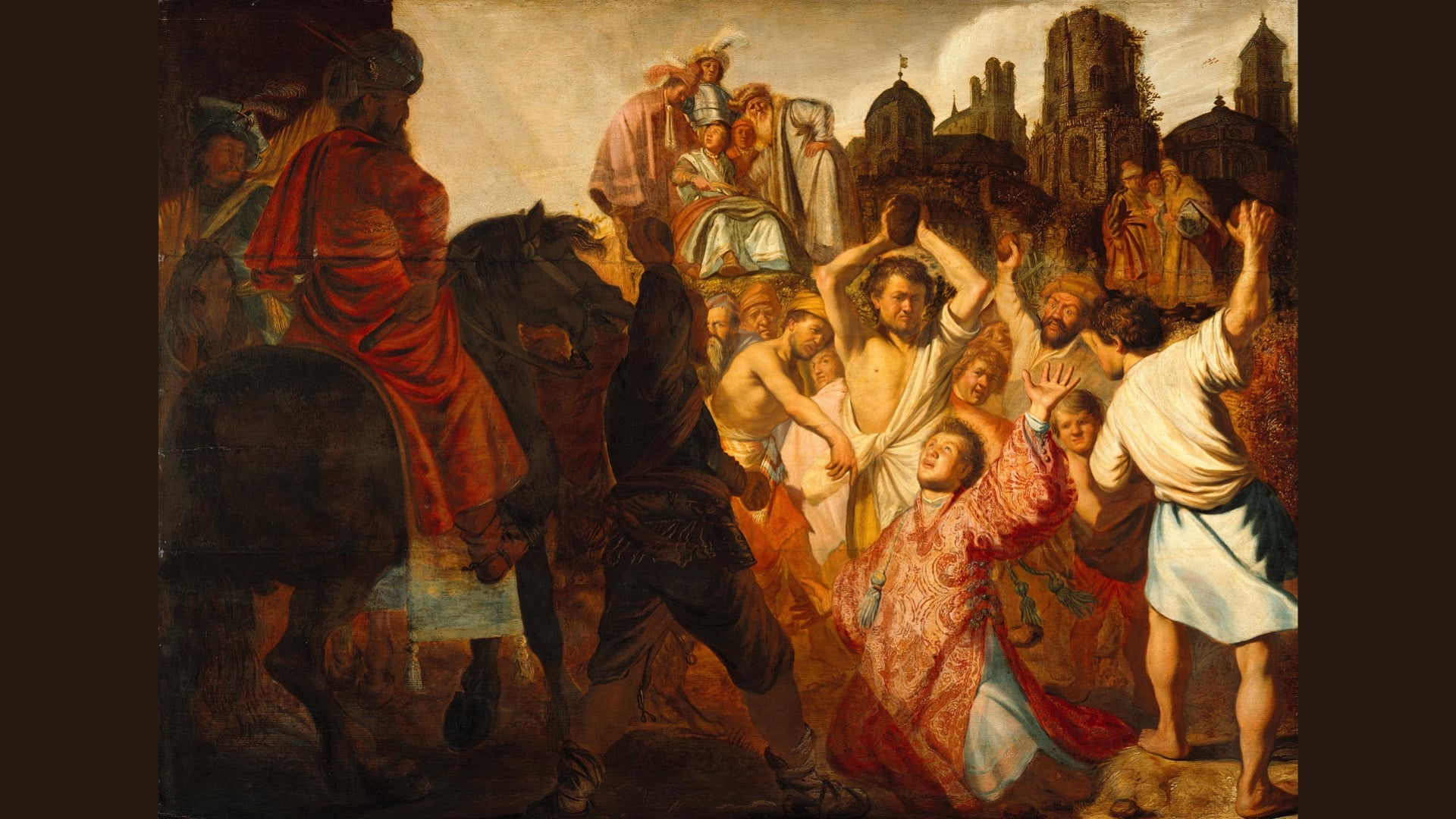Few people in the Bible made such a strong impact in such a short time, but Stephen did. His story, though brief, is powerful and unforgettable.
As a bold voice in the early Christian church, Stephen stood firm in his faith during a time of growing danger and division in Jerusalem.
From servant to fearless witness, his courage and conviction left a lasting mark on history.
Here are some of the most interesting facts about Stephen in the Bible that reveal who he was and why his legacy still matters today.
Stephen’s Life, Ministry, and Martyrdom
Stephen appears in the Book of Acts as a man known for his deep faith, spiritual insight, and commitment to service. He was appointed one of seven men tasked with fairly distributing aid among believers.
However, his ministry soon expanded. He spoke boldly about Jesus and performed signs that drew attention and criticism.
His powerful speech before the council, delivered in the face of false accusations, ended with his death by stoning.
Now let’s discuss some interesting facts about Stephen, especially from the Bible:
1. Stephen was One of The First Deacons
Stephen was chosen as one of seven men to assist with daily food distribution among early believers, especially to widows.
This selection, found in Acts 6, highlights his reputation for honesty and reliability. These men helped ensure fairness and allowed the apostles to focus on teaching.
Stephen’s appointment set the groundwork for the office of deacon in the church.
2. He was Full of Faith, Power, and Wisdom
Acts 6:8 and Act 6:10 describe Stephen as “full of faith and power.” He wasn’t just practical, he was spiritually dynamic.
Stephen performed signs and wonders, signaling divine approval. His combination of character and ability made him stand out.
When members of the Synagogue of the Freedmen debated him, they could not resist the wisdom and Spirit by which he spoke.
3. He Faced Strong Opposition Leading to False Accusations
Stephen’s influence didn’t go unnoticed by his opponents. Frustrated by their inability to silence him through argument, they resorted to stirring up the public.
They accused him of speaking against Moses and the temple. False witnesses were brought against him, claiming he said Jesus would destroy the temple and change the laws given by Moses.
4. His Face Appeared Like an Angel’s During His Trial
While standing before the Sanhedrin, Stephen’s face was described as shining like that of an angel.
This unusual detail suggests a calm and radiant presence, possibly indicating divine favor. It echoes moments in the Bible when a person’s appearance changes during spiritual encounters, such as Moses after meeting with God on Mount Sinai.
5. He Delivered a Long Speech Before the Sanhedrin
Stephen responded with a long historical speech in Acts 7.
He traced Israel’s story from Abraham to Moses. The speech emphasized how God’s messengers were often rejected. It served as both a historical overview and a confrontation.
He accused the religious leaders of being stiff-necked, uncircumcised in heart, and always resisting the Holy Spirit.
6. He had a Vision of Jesus Standing at God’s Right Hand
As the council grew furious, Stephen looked up and declared that he saw “the heavens opened” and Jesus standing at the right hand of God.
This vision was unique, Jesus is typically described as seated, but here He stands, possibly in a posture of welcome or support. The moment further enraged his accusers.
7. His Martyrdom and Its Aftermath
Stephen became the first recorded follower of Jesus to be executed for his faith. His stoning marks the beginning of Christian martyrdom. Following Stephen’s death, a wave of persecution broke out in Jerusalem.
Many believers fled the city, taking the message of Jesus with them. Ironically, this act of violence led to a wider spread of the gospel.
8. He Prayed for His Killers, Showing Deep Mercy
While being stoned, Stephen asked God to forgive his attackers. His words mirrored Jesus’ prayer on the cross. “Lord, do not hold this sin against them,” he said.
This moment reflected deep mercy and spiritual maturity. His prayer showed forgiveness even in his final moments.
9. Saul Was Present and Approved of Stephen’s Execution
Saul, who would later become the Apostle Paul, was present at Stephen’s execution. He held the garments of those throwing the stones and approved of the killing. This moment later took on significance in Paul’s conversion story.
It highlights the contrast between his past as a persecutor and his future as a preacher.
10. His Story is Found in Acts Chapters 6 and 7
Stephen’s full account appears across Acts 6 and 7. These chapters provide details about his appointment, his bold speech, and his final moments.
The placement of his story early in the book shows his importance in the church’s formative period. His example was meant to inspire strength and conviction among believers.
11. He is Honored with a Feast Day and as a Patron Figure
Stephen is remembered in several Christian traditions with a designated day of observance. December 26, known as St. Stephen’s Day, is marked in various countries.
He is considered a patron of deacons and those who suffer for their faith. His example has been a source of strength for generations of believers facing opposition.
Bonus Fact: His Name Means “Crown”
The name Stephen comes from the Greek word Stephanos, meaning “crown.” It’s a fitting title for someone who remained faithful unto death.
In the New Testament, crowns often represent reward, honor, or victory. Stephen’s life and sacrifice align with this theme, as he stood firm in belief and courage until the end.
The Bottom Line
Stephen’s life and death made a big impact on early Christianity. His story shows us what true courage and faith look like. He showed that they mean more than just words.
It means standing up for what’s right even when it’s dangerous.
Stephen also forgave the people who killed him. This teaches us about mercy and love.
His example reminds us that following God sometimes costs a lot. But Stephen stayed faithful no matter what happened.
Today, believers can learn from Stephen’s story.
We can choose to serve others like he did. We can be brave when we face hard times.
Stephen’s legacy encourages us to live with integrity and compassion every day.















